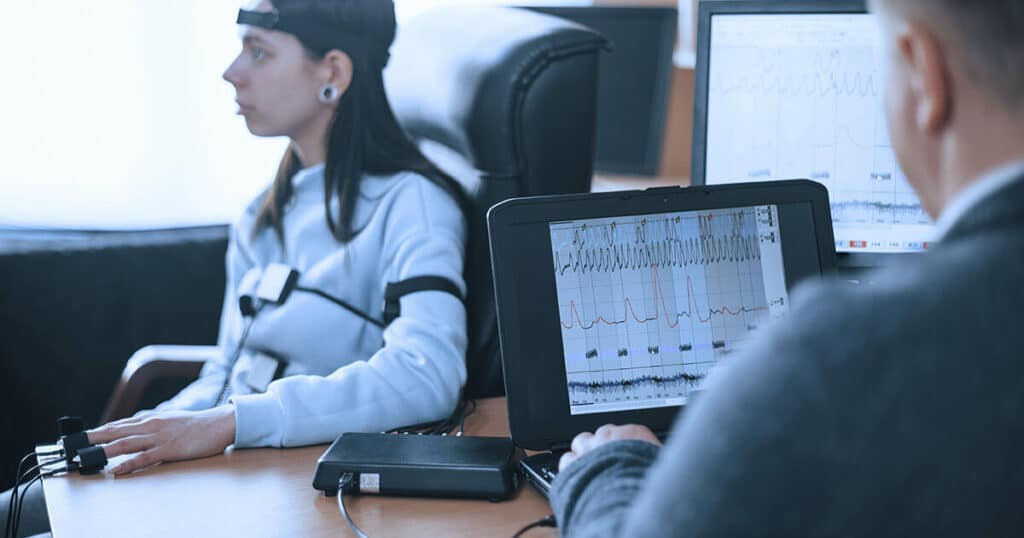Probably one of the most challenging duties of an astute and well-meaning line manager, officiating as initiator or management representative in a disciplinary matter, is to present a case to a decision maker (presiding officer) in such a way that the latter is able to arrive at a disciplinary decision which is based on the truth.
Invariably, the line manager, officiating as decision maker in the matter, is faced with two opposing versions of the truth, while each of the opposing parties claim their particular version to be the truth. The veracity of the evidence presented in support of these opposing versions of the truth will eventually be determinant, leading the decision maker to a justifiable conclusion.
The veracity of the evidence depends on its credibility and reliability, which the decision maker has to assess and determine. The conclusion so reached is then incorporated his/her reasoned finding regarding guilt or innocence in respect of the charge.
Where it so happens that the evidence is not that clear-cut or obvious to endorse any of the two versions of the truth and where the two versions seem, on face value at least, equally balanced, the initiator of the case concerned may have to rely on other less conventional methods or devices in order to tilt the scale in favour of the prospective guilty finding he/she aspires to.
When the initiator reaches this seemingly “stalemate” situation, it is often the assistance of lie detector tests that could potentially come to the rescue.
The question now arises to what extent lie detector tests can legally and fairly be applied in the process of uncovering the truth in a disciplinary investigation and what is the probative value of lie detector tests?
In order to answer these questions, one has to firstly identify the lie detector tests which are commonly in use.
Notably, the most well-known lie detectors are the polygraph test (measuring blood pressure and perspiration during the inquest) and the voice stress analysis (detecting subtle, but significant fluctuation in voice tones and patterns during the inquest).
Both of these detection mechanisms have the objective to identify and expose deception on the part of the subject of the inquest. I will, in this communiqué, predominantly and generally refer to “lie detectors”, as generic terminology, without specifying a particular device, unless when quoting from a particular piece of case law. The principles mentioned in this communiqué will equally apply to polygraph tests, voice stress analysis tests, or, for that matter, to all other kinds of lie detector devices.
The statutory provisions contained in labour law do not specifically deal with the use of lie detectors, hence the “law” concerning the utilisation of lie detectors has to be found in relevant case law.
Which criteria govern the utilisation of lie detector tests, as gleaned from relevant case law?
Unless a provision is built into the employment contract, contractually obliging the employee to undergo a lie detector test as and when so required by the employer, the employee has to formally agree to be submitted to a lie detector test, each and every time such test is to be administered.
Refusal to submit to a lie detector test:
This brings us now to the eventuality where the employee refuses to undergo a lie detector test.
Where the employee is contractually obliged to undergo the lie detector test but refuses to submit to such test when so required by the employer, such refusal could constitute insubordination on the part of the employee.
This was confirmed in the Labour Appeal Court case: Gemaltu SA (Pty)Ltd v CEPPWAWU obo Louw & 20 others, Moahloli Nyama N.O. and the CCMSA (LAC) 2015. As in this case, the dismissal of the employee, on the basis of insubordination, was declared fair in the circumstances.
In the Labour Court case: Nyathi v Special Investigation Unit (2011) Labour Court (LC), a somewhat more “academic” approach was adopted by the court regarding the refusal to undergo a lie detector test, where the employee is contractually obliged to do so. A distinction was drawn between, on the one hand, treating the refusal as misconduct (insubordination), founded on the statutory right not to be unfairly dismissed (refer Section 185(a) of the Labour Relations Act) or, alternatively, treating such refusal as breach of contract, the legal remedy of which is founded on the principles of Law of Contract.
In the former instance, the remedy of the misconduct could, theoretically, have been a legally and fair termination of the employment contract, arguably, by way of summary dismissal. In the Nyathi-case, the latter approach was however followed, treating the refusal as a repudiation of the employment contract, which repudiation the employer accepted and consequently terminated the employment contract lawfully.
In the absence of a contractual obligation to submit to a lie detector test, the formal consent of the employee has to be obtained. In such circumstances, it will be unfair to penalise the employee for withholding such consent and for the resultant implicit or explicit refusal to submit to the lie detector test. This however does not prevent the employer to draw an adverse inference regarding the motive for such refusal, especially when such inference is supported by circumstantial evidence.
Submitting to the lie detector test but failing the test.
As crystallised from relevant case law, one utmost important requirement to consider when utilising lie detector test results in order to prove guilt in a disciplinary matter (albeit doing so on a balance of probability), is that on its own, lie detector test results are inconclusive evidence of wrongdoing.
Gleaned from the Labour Appeal Court case: DHL Supply Chain (Pty) Ltd v De Beer N.O., National Bargaining Council for the Road Freight Industry, R Dube & E Masinga (LAC)2014 the following emerged regarding the probative value of lie detector test results:
- Polygraph test results are not conclusive nor corroborative to establish guilt in the absence of expert evidence to establish the cogency of such evidence, that is, confirming the technical integrity of the test.
- Polygraph test results presented as evidence, is not an approved species of evidence and must be supported by expert evidence of its accurate application.
- Polygraph test results may be sufficient to discharge the required onus of proof, provided that it is corroborated by relevant circumstantial evidence. Circumstantial evidence within this context is defined as “indirect evidence which creates an inference from which a main fact can be inferred”.
- Failing a polygraph test could (theoretically) fortify a reasonable suspicion, provided that the weightiness of such failure is determined by corroborating evidence.
From the above it is evident that one cannot rely solely on lie detector test results to prove guilt in a disciplinary case. These test results can however be useful contributors to the frame of evidence relied on to prove guilt.
Apart from being a contributing factor in proving guilt, how else can lie detectors be applied within disciplinary cases?
It was pointed out in the DHL-case referred to above that, at best, polygraph test results can be used as part

of the disciplinary investigation process in order to determine whether or not further investigation of a particular individual, seemingly involved in the matter concerned, is warranted.
In this way, the lie detector test result is basically used as an elimination tool, directing the investigator to focus his/her efforts and energy only on those individuals who failed the lie detector test, as well as those who refused to undergo the test. In so doing, the lie detector test results are contributors to the preponderance of probability.
Used as an elimination tool, lie detector tests prove neither guilt, nor innocence – it merely concentrates the investigator’s focus on those individuals in respect of whom the likelihood or prospect of finding corroborative evidence of guilt is more promising and therefore the discharging of the onus of proof is more attainable.
There are also instances, borne out in case law, where lie detector tests were used as selection criteria, such as to exclude job applicants from appointment based on the fact that they failed a lie detector test. This utilisation of lie detector tests were however generally frowned upon, since, as the court stressed in the Labour Court case: Sedibeng District Municipality v South African Local Government (2012) LC, “polygraph test results are not, in themselves, reliable indicators of deceit”. The court further stated that within recruitment context, specifically, these test results should not be relied on exclusively, since it constitutes an unfair basis for excluding candidates for appointment.
In summary:
Firstly, the dominant principle regarding lie detector tests is that lie detector test results have no probative or evidentiary value on its own. These results have to be corroborated by other tested evidence for it to be given any significant weight in proving guilt. Without this corroborating evidence, the lie detector test results are no more than hearsay evidence.
Secondly, proof of the accuracy of the test, which is inextricably linked to the way in which it is administered, is a crucial requirement to confirm the technical integrity of the test itself.
Thirdly, it is imperative that the employee must consent to being subjected to a lie detector test. This consent can be derived from a contractual condition formally agreed to between the employer and the employee or from ad hoc consent given, per occasion, where lie detector tests are resorted to.
Fourthly, once consented to, the employer will be able to use lie detector test results more productively and fairly, not necessarily to prove guilt, but to eliminate suspects.
To conclude:
When the employer contemplates making use of lie detector tests in order to uncover the truth, the following considerations should be kept in mind:
- Ensure that the employee to be subjected to the test has formally consented to it.
- Make use of a reputable and qualified examiner to conduct the tests.
- Ensure that the employee to be subjected to the test is able to undergo the test physically and mentally.
- Ensure that the procedure to be followed and the motive for the test are explained to the employee beforehand.
- When lie detector test results are used as evidence, ensure that the examiner is called as an expert witness.
Resorting to lie detectors is by no means a substitute for proper investigative procedures, but it can, in appropriate circumstances and when utilised properly, ably assist in uncovering the truth.
